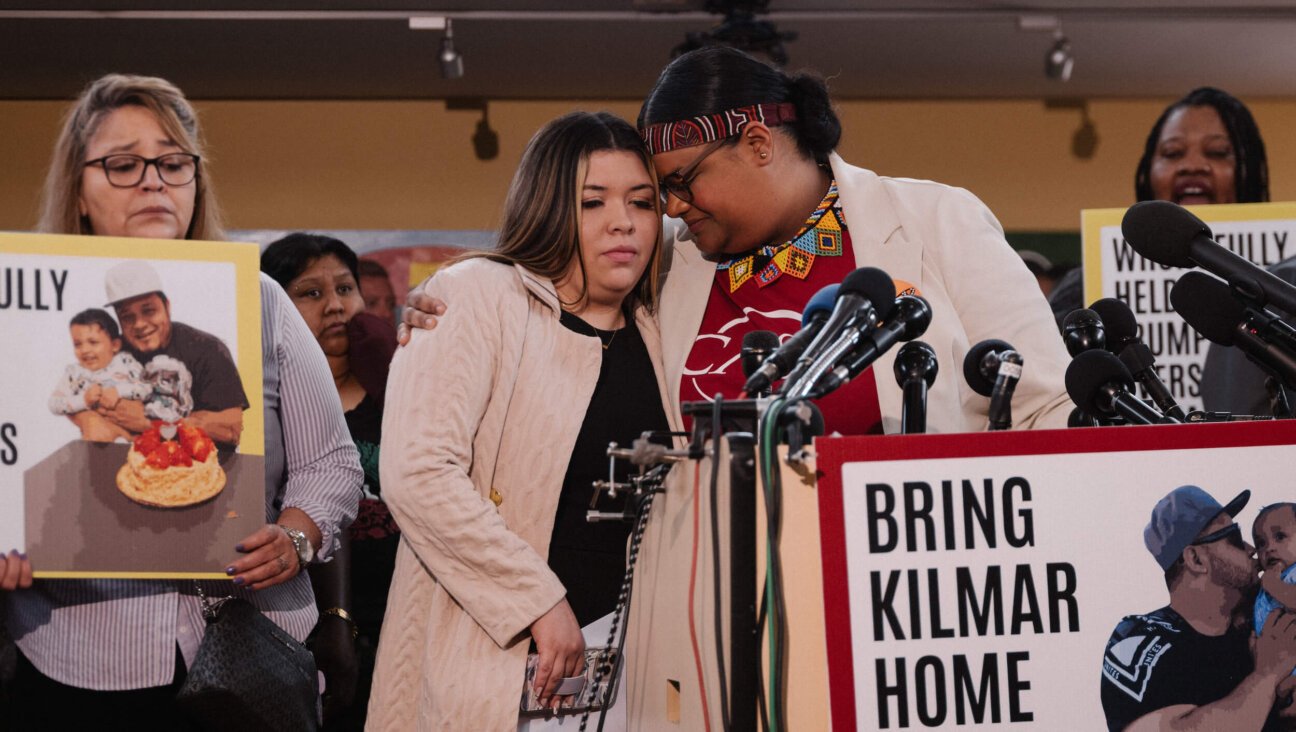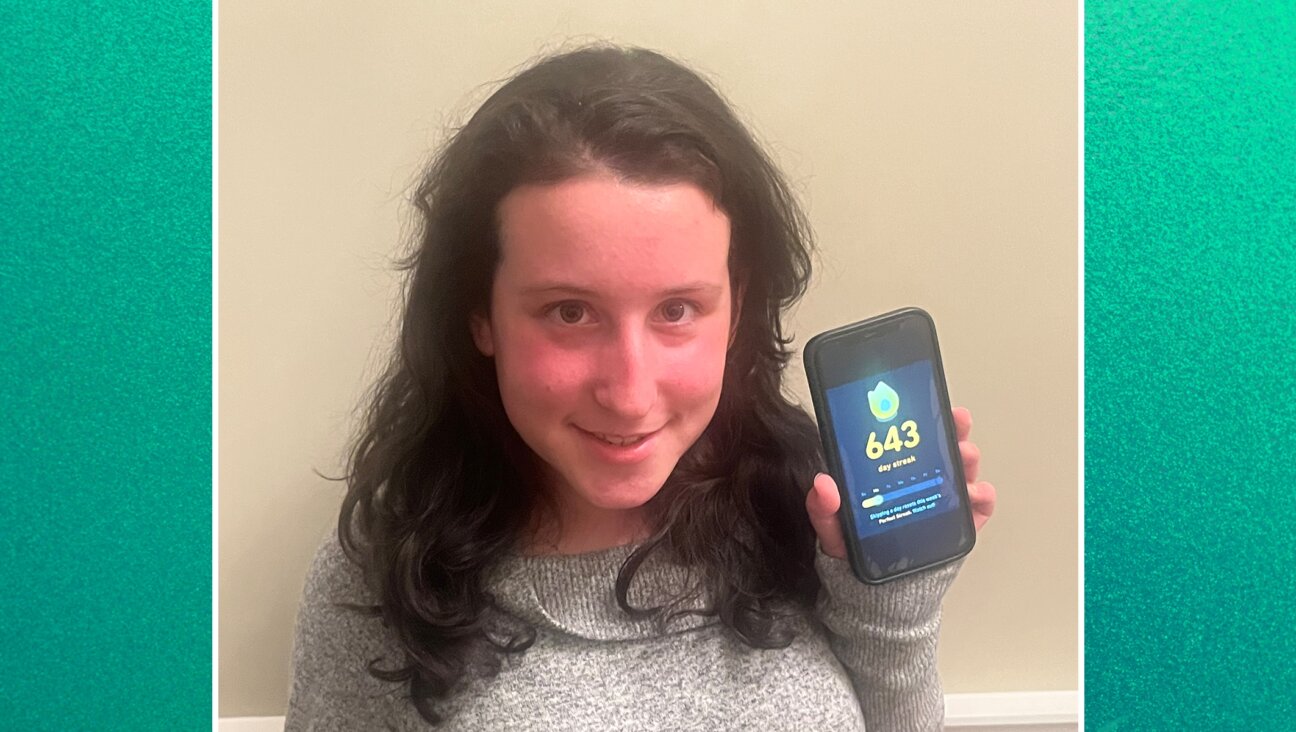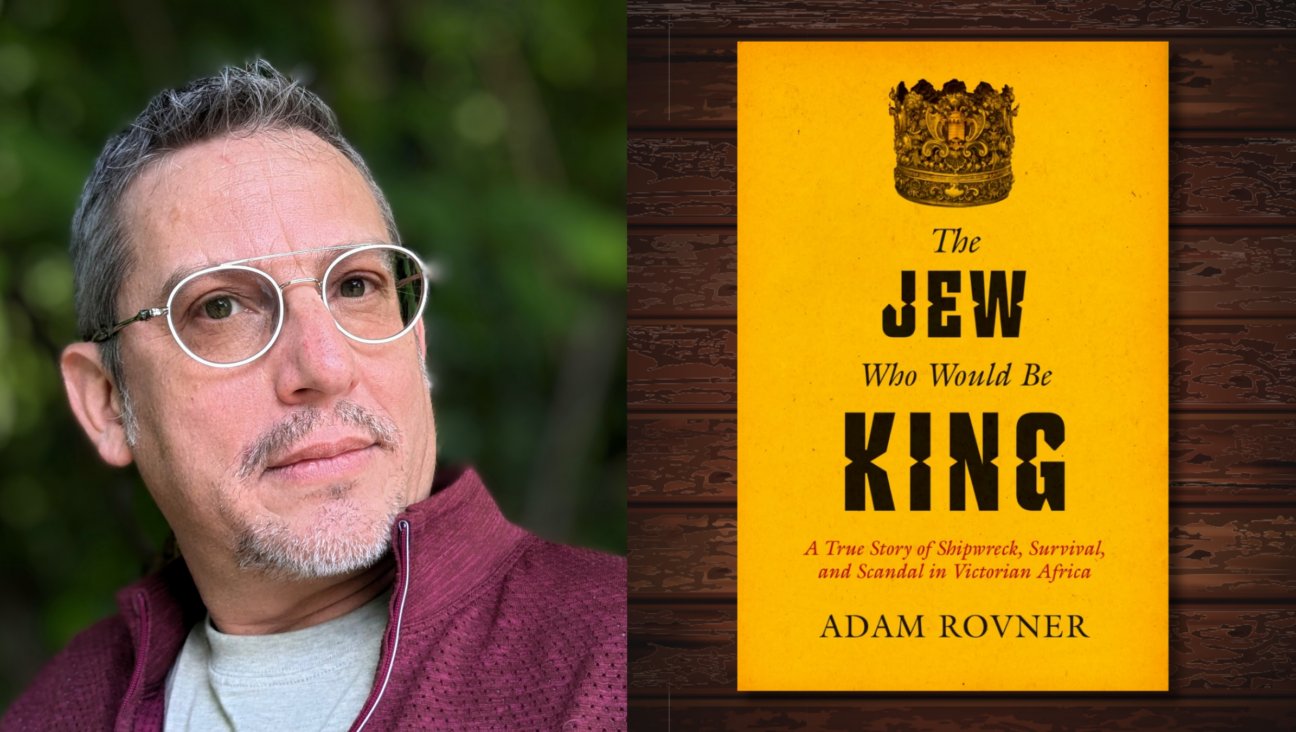Orthodox Boom Burb Wins Over Locals
Englewood, N.J. – Twenty years ago, the Jewish face of this city was its Conservative synagogue, which had gathered in a community of young affluent couples who left behind their impoverished urban childhoods as well as the Orthodox religion of their parents.
Today that synagogue, Temple Emanuel, has moved to a smaller, less affluent suburb while the main Orthodox congregation, Ahavath Torah, has been growing by leaps and bounds. In the last five years, it has grown to 750 families from 500. To fit all these new people — many of them young, affluent couples — the congregation broke ground last Sunday on a new synagogue, set among the mansions that define Englewood’s hilly north side. The new structure is set to cost some $17 million.
Englewood is one of many suburbs around New York to successfully lure young Orthodox couples (and benefit from their high birthrates). Among the others are the Five Towns and Great Neck, on Long Island, and — next to Englewood on Route 4 —Teaneck (which recently elected its first Orthodox mayor). Many of these communities are facing similar sets of challenges, as internal divisions among the Orthodox increasingly generate religious turns to the right, leading to the formation of smaller synagogues. Then there are the criticisms from non-Jewish neighbors about Orthodox insularity, on the one hand, and growing Orthodox political power on the other.
But, compared to these other towns, Englewood seems to have set itself apart, skirting its way around many of these problems and keeping the good graces intact.
“It’s always on the borderline of a concern — that the community would try to take over all the boards or totally insulate themselves,” said Scott Reddin, a city council member who comes from a Jewish background but is not part of the Orthodox community. “They have figured out a good mix.”
One of the primary symbols of Englewood today is the city’s current mayor, Michael Wildes, a member of Ahavath Torah who was just elected for his second term. When local funerals occur during the Jewish Sabbath, Wildes has been known to walk to them along local highways, with a police escort. In those visits, Wildes says he makes a point of speaking about his own beliefs.
“When I go into a black church here I’m only too happy to talk about the latest Dvar Torah given by my rabbi,” Wildes said.
Before Wildes, Englewood was governed by Steve Rothman, a representative of an earlier era of Englewood Jewry. Rothman’s family belonged to Ahavath Torah when he was young, but Rothman became less observant over the years and today belongs to a Reform synagogue.
Rothman told the Forward that during his youth “the Jewish population was very small and on the periphery of community affairs. Now the community is an integral part, in business and the arts and charitable affairs. The Orthodox community in particular has found a place where it has flourished.”
In fact, Ahavath Torah has grown into the largest Orthodox synagogue in the state and is now one of four in town, two of which were formed in the last decade.
The Jews who belong to these synagogues have not only become more numerous, they have also become more religiously observant. “During the Sukkot celebrations years ago, very few people had a lulav or etrog,” said Norman Lamm, the president of Yeshiva University, referring to the palm fronds and citrus fruit used during the holiday. “Now everyone is here waving them. You have traffic-control problems.”
In general, the Orthodox community has been moving toward greater religious observance, and this has not always been good for the political clout of these communities, as divisions have surfaced.
“In many communities you are seeing what I call shtiebelization,” said Rabbi Shmuel Goldin, the rabbi at Ahavath Torah. “Now you have a lot of little synagogues. One of the drawbacks to that is that there is no sense of community.”
Members of Ahavath Torah say the synagogue has stayed together by offering something for everyone. The new synagogue will have a complex set aside for Sephardic Jews and it is also slated to have a ritual bath, or mikveh. The resulting political clout of Ahavath Torah’s unity has been evident for a number of years. In the early 1990s a member of Ahavath Torah founded NORPAC, which has become the largest pro-Israel political-action committee in the nation. Today, Wildes’s house is also a regular stop for Jewish fund-raisers passing through. Last year he hosted the chief rabbi of Israel, who led a prayer in Wildes’s suburban home.
Wildes has not been afraid to bring some of those Jewish interests into his work as mayor. “I bring people with kippot to city boards that have never had them,” Wildes said. In a number of suburban areas the influence of growing Orthodox communities has made for some resentment among locals. One particular point of tension has been funding for public schools, a consequence of the fact that Orthodox families rarely send their children to public schools and have often pushed to lower the taxes going to education.
But even on this issue, matters were resolved before they could snowball into a large controversy. Several years ago, four Orthodox members of the school board opposed a bond issue to pay for better schools, but when it became clear that the position was unpopular the Orthodox members gave up their seats. (Wildes, in what now seems like a prescient move, voted against the other Orthodox members.) To counter any ill will, last year members of the synagogue began a tutoring program.
The community as a whole gets a vote of support from one of the leading black clergy members in town, Vernon Walton, who is also a city-council member. “When there is an issue that cuts across the community,” said Walton, “they have demonstrated willingness and a desire to share in a greater sense of community.”
The Forward is free to read, but it isn’t free to produce

I hope you appreciated this article. Before you go, I’d like to ask you to please support the Forward.
Now more than ever, American Jews need independent news they can trust, with reporting driven by truth, not ideology. We serve you, not any ideological agenda.
At a time when other newsrooms are closing or cutting back, the Forward has removed its paywall and invested additional resources to report on the ground from Israel and around the U.S. on the impact of the war, rising antisemitism and polarized discourse.
This is a great time to support independent Jewish journalism you rely on. Make a Passover gift today!
— Rachel Fishman Feddersen, Publisher and CEO
Most Popular
- 1

Opinion My Jewish moms group ousted me because I work for J Street. Is this what communal life has come to?
- 2

Fast Forward Suspected arsonist intended to beat Gov. Josh Shapiro with a sledgehammer, investigators say
- 3

Fast Forward How Coke’s Passover recipe sparked an antisemitic conspiracy theory
- 4

Politics Meet America’s potential first Jewish second family: Josh Shapiro, Lori, and their 4 kids
In Case You Missed It
-

Opinion This Nazi-era story shows why Trump won’t fix a terrifying deportation mistake
-

Opinion I operate a small Judaica business. Trump’s tariffs are going to squelch Jewish innovation.
-

Fast Forward Language apps are putting Hebrew school in teens’ back pockets. But do they work?
-

Books How a Jewish boy from Canterbury became a Zulu chieftain
-
Shop the Forward Store
100% of profits support our journalism
Republish This Story
Please read before republishing
We’re happy to make this story available to republish for free, unless it originated with JTA, Haaretz or another publication (as indicated on the article) and as long as you follow our guidelines.
You must comply with the following:
- Credit the Forward
- Retain our pixel
- Preserve our canonical link in Google search
- Add a noindex tag in Google search
See our full guidelines for more information, and this guide for detail about canonical URLs.
To republish, copy the HTML by clicking on the yellow button to the right; it includes our tracking pixel, all paragraph styles and hyperlinks, the author byline and credit to the Forward. It does not include images; to avoid copyright violations, you must add them manually, following our guidelines. Please email us at [email protected], subject line “republish,” with any questions or to let us know what stories you’re picking up.
















